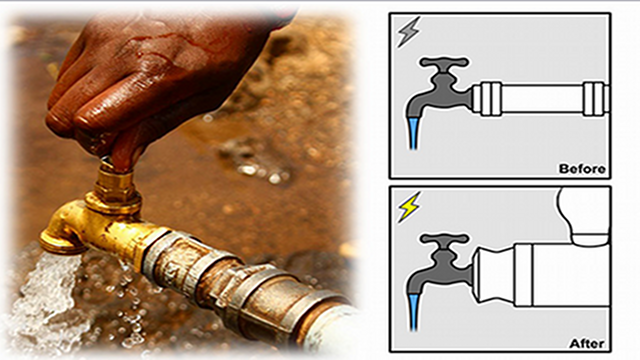The failures, explosions, leaks and subsequent radioactive dead zone that will stain Japan for decades all started with an earthquake. Nobody can stop earthquakes. But after a thorough review, the Japanese government admits humans are responsible for the entire mess.
The official report of The Fukushima Nuclear Accident Independent Investigation Commission, produced by the Japanese National Diet, doesn’t blame nature. It doesn’t blame the tsunami, or the splitting of the atom, or all of the poisonous isotopes wafting across Fukushima’s previously bucolic farmlands. Instead, people are the villains. The report blames TEPCO, the nuclear power company that botched its own botched response to the disaster. It blames “the ingrained conventions of Japanese culture: our reflexive obedience; our reluctance to question authority; our devotion to ‘sticking with the program’; our groupism; and our insularity.” It blames government bureaucracy (of course). But in aggregate, it still emphasises that this was a human catastrophe, going so far as to title a portion of the report A “manmade” disaster.
The findings damn our species for its insolence in the face of incredibly destructive power:
The TEPCO Fukushima Nuclear Power Plant accident was the result of collusion between the government, the regulators and TEPCO, and the lack of governance by said parties. They effectively betrayed the nation’s right to be safe from nuclear accidents. Therefore, we conclude that the accident was clearly “manmade.” We believe that the root causes were the organizational and regulatory systems that supported faulty rationales for decisions and actions, rather than issues relating to the competency of any specific individual.
This is a chilling reminder — but more chilling that it required a reminder.
Atomic energy was first brought to Japan as a means of calming the world about nuclear proliferation — if we could show everyone that atoms were our friends, with cartoon eyes and cartoon arms and Mickey Mouse gloves, then it’d be fine to stockpile some warheads on the side too. As the Bulletin of the Atomic Scientists pointed out, the push to give nuclear energy to Japan through diplomacy and trade was accompanied with a grotesquely sanguine zeal:
“Many Americans are now aware … that the dropping of the atomic bombs on Japan was not necessary. … How better to make a contribution to amends than by offering Japan the means for the peaceful utilization of atomic energy. How better, indeed, to dispel the impression in Asia that the United States regards Orientals merely as nuclear cannon fodder!”
That was published in the Washington Post.
We pushed nuclear energy on the Japanese in the 1950s, a society dizzy from the two nukes we’d dropped on them a short decade before. It was our hubris that pushed it, and theirs that ran with it until last year’s disaster. They took atomic power with the same cavalierness with which it was given, tangling nuclear reactors in a culture of corporate corruption, cronyism and whitewashing. Nuclear energy was pitched and bought as an unmitigated gift, the massive risks of which were to be scrubbed away however possible — because that’d ruin the easy energy. So the Commission’s conclusion shouldn’t be any surprise:
Across the board, the Commission found ignorance and arrogance unforgivable for anyone or any organisation that deals with nuclear power. We found a disregard for global trends and a disregard for public safety. We found a habit of adherence to conditions based on conventional procedures and prior practices, with a priority on avoiding risk to the organisation. We found an organization-driven mindset that prioritised benefits to the organisation at the expense of the public.
To deal with something that can ruin entire swaths of a country with nothing but the utmost concern for the public is ignorance and arrogance in its quintessence. It’s reassuring to see Japan’s government cop to as much.
